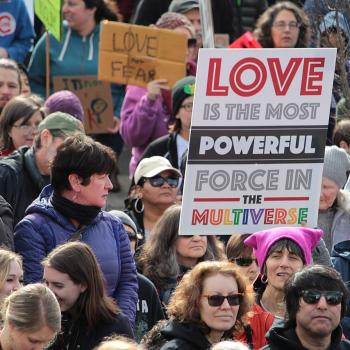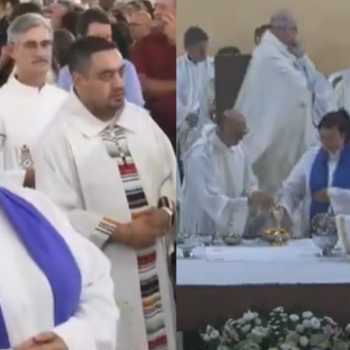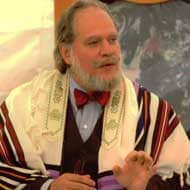The Jewish Year in Short
By Reb Bahir
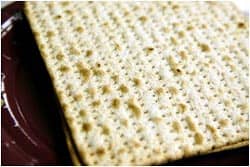 It has been a long, cold, and rainy winter. The stores from last spring's harvest from the fields outside of Jerusalem are almost gone. The Jews of ancient Israel, whom we channel in holiness, had been eating long stored supplies but the New Year is about to begin. Nisan, the first month, is upon us and the first harvest of the year, the barley harvest, is taking place.
It has been a long, cold, and rainy winter. The stores from last spring's harvest from the fields outside of Jerusalem are almost gone. The Jews of ancient Israel, whom we channel in holiness, had been eating long stored supplies but the New Year is about to begin. Nisan, the first month, is upon us and the first harvest of the year, the barley harvest, is taking place.
The community breathes a collective sigh. To celebrate our deliverance from the winter winds and rain we sit down to a feast called Pesach on the 15th day of Nisan. During the festival we eat the Matzah of memory, not just of the long winter, but of the liberation from Egypt so long ago. For eight days we abstain from leavened products. On the first night, we consume ritual foods, memory foods, bitter herbs and lamb and wine and Matzah all that has been imbued with sacred meaning. And when the eight-day holiday has passed, the barley stores replenished, and the spring days grown longer we count a week of weeks, 49 days until the next harvest, that of wheat.
If Pesach is a reminder of escape, the escape from winter and famine, the escape from Egypt and slavery, Shavu'ot in Sivan is the day of liberation. Wheat, which makes the soft and aromatic Hallah, wheat the 'staff of life' is a reminder of G's gift of Torah direction on Mt. Sinai. Freedom has to be more than, as the song says, "nothing left to lose!" Responsibility and relationship give freedom its meaning. On Shavu'ot the wheat harvest is finished and the memory of the cold winter is softened. The memory of the harsh treatment at the hands of Pharaoh is softened by the Torah teachings, the guidance of our Sacred Guide.
As the summer gets hotter and the days longer, the harvests are shared in the Temple and shared with the poor and the rest is stored away for the long winter to come. During the summer there is a rollercoaster of highs and lows in the people's soul-muscle memory. The three weeks, from the 17th of Tammuz until the 9th of Av, are a collective downward spiral of sadness, culminating in the tears of tragic loss as we recall the glory of the Temple and horror of destruction and exile that we commemorate on and call the 9th of Av or Tisha B'Av. And yet six days later on the 15th of Tammuz, we celebrate our day of love. Women go out into the fields dressed in their finest. Men spruce up and present their best image. This is the day of hope and happiness, of love and laughter. It is the day of faith in the future. For the future is love.
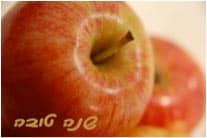 And soon after the day of love and life we begin the process of ridding ourselves of the baggage that we have been carrying around for a year. During the month of Elul we approach each other with kindness and compassion, seeking forgiveness for wrongs committed knowingly or unknowingly. We seek to forgive those who have harmed us, knowingly or unknowingly. For one whole month we try to clear away our baggage, to put down the heavy impediments to a joyous life.
And soon after the day of love and life we begin the process of ridding ourselves of the baggage that we have been carrying around for a year. During the month of Elul we approach each other with kindness and compassion, seeking forgiveness for wrongs committed knowingly or unknowingly. We seek to forgive those who have harmed us, knowingly or unknowingly. For one whole month we try to clear away our baggage, to put down the heavy impediments to a joyous life.
And on the first of Tishrei, the 7th month of the Jewish Year we speak of the good changes that we wish to make in our lives. We call this day Rosh HaShanah. Some call this the Head of the Year, but I call it the time of 'head changes,' a time to get our head around the changes we wish to make.
We even change the year on that date, though it is not the first of the year. It is the first day of our good changes. For ten days we do our inner homework after a month of our interactive prep work. It comes to a head not on the head of the year but on the Day of Atonement that we call Yom Kippur. We say Day of Atonement but we might easily interpret this day as a day of at-one-ment. It is a time when we measure and re-balance after dropping the baggage that has been weighing us down. It is a day of at-one-ment, a day to awaken ourselves to our oneness with G, with our higher selves, with our tribe, with all humanity, and with our planet.

